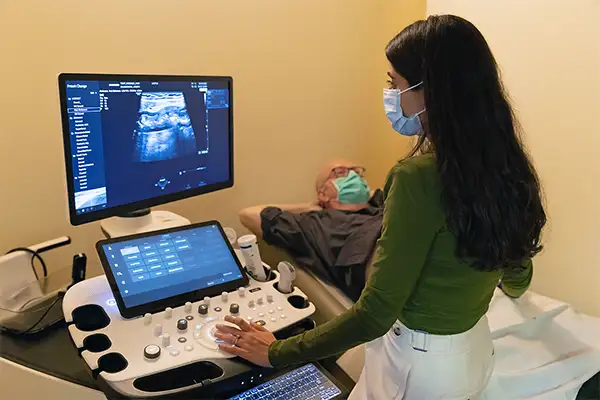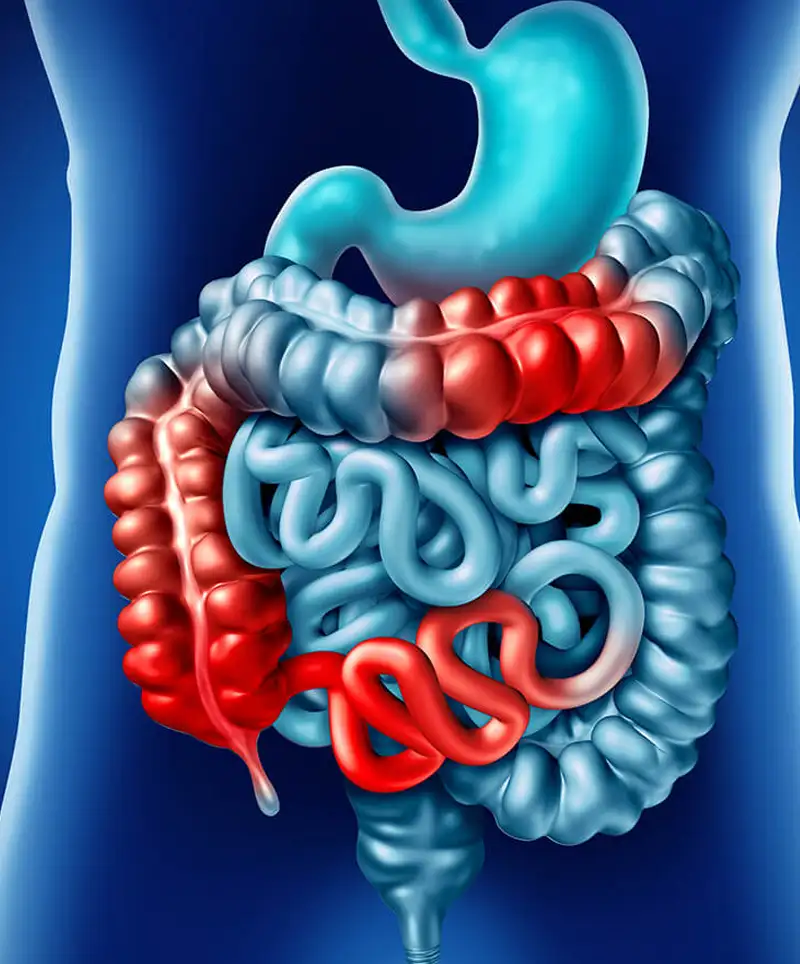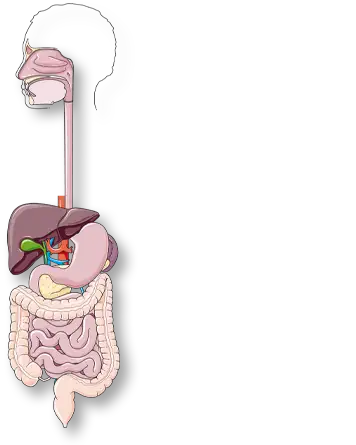A Look at a Gritty Subject
Each year, Crohn's and Colitis Awareness Week emerges as a beacon of hope and understanding in the often-shadowy world of gastrointestinal disorders. This special week serves as a platform to bring out into the open illnesses that are frequently shrouded in secrecy or spoken of in hushed tones. It's an opportunity not only to spread knowledge and awareness about Crohn's disease and ulcerative colitis but also to foster a sense of empathy and solidarity among those affected, their loved ones, and the wider community. As we embark on this journey, we aim to navigate the complex landscape of these conditions with a touch of light-heartedness, finding humor in the quirks and challenges that accompany them. This approach does not undermine the seriousness of these diseases but rather adds a humanizing and relatable dimension to the conversation. Through education, empathy, and a sprinkle of humor, Crohn's and Colitis Awareness Week invites us to engage in a deeper, more meaningful dialogue about these "gutsy" battles, encouraging us to look beyond the discomfort and stigma to understand the real experiences of those living with these chronic conditions.
What Are Crohn's and Colitis?
Crohn's disease and ulcerative colitis stand at the forefront as the primary types of Inflammatory Bowel Diseases (IBD), distinguishing themselves significantly from the less intense IBS (Irritable Bowel Syndrome). To understand them better, imagine Crohn's and Colitis as the Marvel superheroes of the digestive world - intricate, often misinterpreted, and perpetually engaged in a fierce combat against inflammation. These conditions are not mere occasional upsets; they represent a relentless, ongoing struggle happening within the body.
Crohn's disease is a particularly formidable opponent due to its ability to appear anywhere along the digestive tract, from mouth to anus. This means it can cause a wide range of symptoms and complications, varying greatly from person to person. It's a bit of a shapeshifter, causing inflammation that can penetrate deep into the layers of the gut wall, leading to symptoms that are as unpredictable as they are challenging. On the other hand, ulcerative colitis is more like a focused rebel, confining its insurrection to the colon and rectum. It tends to cause inflammation and ulcers along the innermost lining of the large intestine and rectum, leading to a different but equally challenging set of symptoms.
The impact of these conditions extends beyond mere physical symptoms. They often carry a psychological and emotional toll, affecting individuals' quality of life, their social interactions, and even their self-esteem. It's not just about managing pain and discomfort; it's about coping with a condition that can be as mentally taxing as it is physically. For many, living with Crohn's or Colitis is a journey of ups and downs, of learning to understand and adapt to their body's unique language and signals. Yet, within this journey lies a story of resilience and strength, as individuals navigate the complexities of these conditions with courage and determination.
More Than Just a Tummy Ache
When it comes to the symptoms of Inflammatory Bowel Diseases (IBD) like Crohn's and Colitis, describing them as merely a "tummy ache" is a vast understatement. The range of symptoms experienced by those with IBD is as varied and complex as the conditions themselves. It's akin to your gut deciding to throw an uninvited, all-night rave, complete with all the unwelcome disruptions you can imagine. The hallmark symptom, abdominal pain, can range from a mild, nagging discomfort to severe cramps that can be debilitating, making even simple daily tasks feel like monumental challenges.
But the fun doesn't stop there. IBD often leads to more frequent and urgent trips to the bathroom. This isn't just inconvenient; it can be life-altering. Picture this: you're at the movies, deeply engrossed in the plot, and suddenly, your gut demands an immediate bathroom break. It's not just about missing a crucial scene; it's the anxiety and stress that come with constantly scouting for the nearest restroom wherever you go.
Beyond these more visible symptoms, IBD often has a more insidious side. Chronic inflammation can lead to fatigue so profound that it feels like wearing a lead suit all day. A tiredness doesn't go away with a good night's sleep. Weight loss, too, is a common companion of IBD, often stemming from a reduced appetite or the body's inability to absorb nutrients due to the inflammation properly. And then there's anemia, a sneaky side effect of chronic blood loss and nutrient deficiencies, which can leave you feeling even more exhausted and washed out.
These symptoms collectively impact not just the physical health but also the mental well-being of those living with IBD. It's a cycle of discomfort, stress, and often embarrassment, as managing these symptoms can feel like a full-time job that requires constant vigilance and planning. The unpredictability of flare-ups adds an additional layer of complexity to life, making it challenging to plan activities, travel, or even enjoy a meal out without the lurking fear of a sudden symptom onset. In essence, living with IBD is like being on a rollercoaster that you never signed up for, complete with twists, turns, and unexpected drops.
The Not-So-Glamorous Journey
Embarking on the journey to diagnose Inflammatory Bowel Diseases (IBD) such as Crohn's and Colitis is far from a straightforward path. It's not as whimsical or as clear-cut as being sorted into a Hogwarts house. Instead, it's a complex and often uncomfortable process that involves a series of medical tests, each playing a crucial role in unraveling the mystery of what's happening inside your digestive system.
 A key player in this diagnostic odyssey is the colonoscopy. The mere mention of this procedure can evoke a sense of dread, and it's certainly not on anyone's list of fun activities. During a colonoscopy, a long, flexible tube with a camera at the end is inserted into the rectum to give doctors a close-up view of the inside of the colon and rectum. This allows them to identify any signs of inflammation, ulcers, or other abnormalities that could indicate IBD. The preparation for a colonoscopy is often jokingly referred to as a “spa diet,” but this is one spa where you won't find any relaxation or cucumber water. Instead, it involves drinking a special (and often unpalatable) laxative solution that clears out your digestive system, a necessary but not exactly pleasant step to ensure that the doctors get a clear view.
A key player in this diagnostic odyssey is the colonoscopy. The mere mention of this procedure can evoke a sense of dread, and it's certainly not on anyone's list of fun activities. During a colonoscopy, a long, flexible tube with a camera at the end is inserted into the rectum to give doctors a close-up view of the inside of the colon and rectum. This allows them to identify any signs of inflammation, ulcers, or other abnormalities that could indicate IBD. The preparation for a colonoscopy is often jokingly referred to as a “spa diet,” but this is one spa where you won't find any relaxation or cucumber water. Instead, it involves drinking a special (and often unpalatable) laxative solution that clears out your digestive system, a necessary but not exactly pleasant step to ensure that the doctors get a clear view.
But the diagnostic process doesn't end there. Other tests often come into play, such as blood tests to look for signs of inflammation or anemia, stool tests to check for infections that could be causing symptoms, and imaging tests like CT scans or MRIs to view the structures of the digestive system. These tests can feel endless and invasive, but they are crucial in piecing together the full picture of the disease.
It's also worth noting that diagnosing IBD can be a game of patience and persistence. Symptoms of Crohn's and Colitis can mimic other digestive disorders, leading to a trial-and-error approach to rule out other conditions. For many patients, reaching a definitive diagnosis is a journey filled with ups and downs, often marked by periods of frustration and relief as pieces of the puzzle slowly come together.
Throughout this not-so-glamorous journey, it's the resilience and determination of the patients that shine through. Each test and each procedure, brings them one step closer to understanding their condition and finding a path towards managing it. It's a testament to their strength and an important reminder of the complexities and challenges of diagnosing and living with IBD.
No Magic Pills, but Plenty of Options
Treating Inflammatory Bowel Diseases (IBD) like Crohn's disease and ulcerative colitis is a multifaceted endeavor, mirroring the complexity of the conditions themselves. There's no universal remedy, no "magic pill" that works for everyone. Instead, treatment is a tailored affair, often a blend of various strategies and therapies that uniquely cater to each individual's condition and lifestyle.
Medication: The First Line of Defense: Medication forms the backbone of IBD treatment. These aren't your ordinary over-the-counter remedies but specialized drugs designed to reduce inflammation, suppress the immune system's overactivity, and relieve symptoms. This arsenal includes aminosalicylates, corticosteroids, and immunomodulators, each with its role and mechanism of action. For more severe cases, biologic therapies, which are administered via injection or infusion, target specific pathways in the immune system and have revolutionized IBD treatment. However, these medications can come with their own set of side effects, and finding the right drug or combination of drugs can be a process of trial and error.
Diet and Lifestyle: The Role of Personal Management: While medication is critical, the role of diet and lifestyle changes cannot be overstated. There's no one-size-fits-all IBD diet, but patients often find that certain foods can trigger or worsen their symptoms. Keeping a food diary, working with a dietitian, and following an elimination diet can be helpful in identifying and avoiding these triggers. It's not just about restriction; it's about finding a balance that nourishes the body without exacerbating the condition. Additionally, lifestyle adjustments like stress management and regular exercise play a supportive role in overall treatment and well-being.
Surgery: A More Drastic, Yet Sometimes Necessary Option: For some, medication and lifestyle changes are not enough. In cases where the disease is severe, not responding to other treatments, or causing complications, surgery might be the next step. This can involve removing a diseased section of the digestive tract or, in the case of ulcerative colitis, possibly removing the entire colon. The thought of surgery can be daunting, but it often brings significant relief and can even be life-saving. Post-surgery, many patients experience a dramatic improvement in their quality of life. Think of it as pressing a 'reset' button, giving the body a chance to start anew without the constant battle against inflammation.
The Journey of Finding What Works: Navigating the world of IBD treatment is a journey. It's about collaborating with healthcare professionals, experimenting with different approaches, and tuning into the body's responses. For many, it's a continuous process of adjustment and adaptation, striving for that delicate balance where the symptoms are manageable, and the quality of life is maintained. In this journey, the patient's determination, resilience, and proactive engagement in their treatment plan play a crucial role. With the right combination of treatments, many individuals with IBD find a way to lead fulfilling lives, proving that while there may be no magic pill, there's certainly hope and a plethora of options to explore.
The Daily Grind
Living with Inflammatory Bowel Diseases (IBD) such as Crohn's and Colitis is a daily adventure, often unpredictable and filled with its own set of challenges. It’s akin to cohabiting with an unpredictable roommate inside your body. This 'roommate' doesn't adhere to any schedule, often choosing the most inconvenient times to act up. One day might be smooth sailing, where you feel almost normal, but the next could be a whirlwind of discomfort and urgency, making even the simplest tasks seem daunting.
The Unpredictability of Symptoms: For many living with IBD, the most palpable aspect of their daily grind is dealing with the unpredictability of symptoms. It's like playing a game of bodily roulette - you never quite know when a flare-up will occur. These flare-ups can include severe abdominal pain, fatigue, and frequent trips to the bathroom, disrupting daily routines and plans. Imagine preparing for an important meeting, a social event, or even just a regular day at work, and suddenly, your IBD decides it's the perfect time to flare up. It's not just inconvenient; it's often embarrassing and exhausting.
The Art of Dietary Management: Then there's the ongoing puzzle of dietary management. Figuring out what to eat can feel like navigating a minefield. Foods that were safe yesterday can suddenly become triggers. It requires a level of dietary detective work, trying to identify which foods exacerbate symptoms and which are safe. This constant guesswork, coupled with the fear of accidental triggers, can turn meal times into a source of anxiety rather than enjoyment.
The Strength of Community: Amidst these challenges, the IBD community stands as a beacon of solidarity and support. It’s a community where sharing tips, experiences, and even a good laugh about the daily struggles becomes a source of strength. From discussing the best strategies to manage flare-ups to sharing recipes that are both safe and delicious, the exchange of information and support is invaluable. Laughter, in particular, plays a unique role in this community. Finding humor in the awkward and often embarrassing situations that IBD can create acts as a coping mechanism, lightening the emotional load and bringing people together in shared experiences.
The Resilience in Routine: Despite the hurdles, many individuals with IBD develop incredible resilience and adaptability. They learn to listen to their bodies, recognize early signs of flare-ups, and take proactive steps to manage their symptoms. They become experts in their own right, finely tuning their routines, medications, and diets to maintain as much normalcy as possible. This daily grind is not just about managing a chronic illness; it's about carving out a life that is as fulfilling and 'normal' as possible despite the challenges.
Living with IBD is indeed a journey marked by ups and downs, but it's also a journey of discovery and strength. It’s about finding joy in the good days, learning from the tough ones, and always remembering that you're not alone in this journey. The IBD community, with its shared struggles, triumphs, and humor, stands as a testament to the human spirit's ability to adapt, overcome, and find light in even the darkest of situations.
Awareness is vital. It's not just about understanding the disease but also about recognizing the strength it takes to live with it. Supporting those with IBD means offering empathy, not just an open bathroom.
Crohn's and Colitis Awareness Week is a time for education, support, and a bit of humor in the face of a challenging condition. It reminds us that while IBD might be a part of someone's life, it doesn't define them. They're warriors with a wicked sense of humor, battling an invisible enemy daily.
Please Share our Content






 A key player in this diagnostic odyssey is the colonoscopy. The mere mention of this procedure can evoke a sense of dread, and it's certainly not on anyone's list of fun activities. During a colonoscopy, a long, flexible tube with a camera at the end is inserted into the rectum to give doctors a close-up view of the inside of the colon and rectum. This allows them to identify any signs of inflammation, ulcers, or other abnormalities that could indicate IBD. The preparation for a colonoscopy is often jokingly referred to as a “spa diet,” but this is one spa where you won't find any relaxation or cucumber water. Instead, it involves drinking a special (and often unpalatable) laxative solution that clears out your digestive system, a necessary but not exactly pleasant step to ensure that the doctors get a clear view.
A key player in this diagnostic odyssey is the colonoscopy. The mere mention of this procedure can evoke a sense of dread, and it's certainly not on anyone's list of fun activities. During a colonoscopy, a long, flexible tube with a camera at the end is inserted into the rectum to give doctors a close-up view of the inside of the colon and rectum. This allows them to identify any signs of inflammation, ulcers, or other abnormalities that could indicate IBD. The preparation for a colonoscopy is often jokingly referred to as a “spa diet,” but this is one spa where you won't find any relaxation or cucumber water. Instead, it involves drinking a special (and often unpalatable) laxative solution that clears out your digestive system, a necessary but not exactly pleasant step to ensure that the doctors get a clear view.








 "Sláinte!" is a traditional Irish expression used as a toast, equivalent to "Cheers!" in English.
"Sláinte!" is a traditional Irish expression used as a toast, equivalent to "Cheers!" in English.